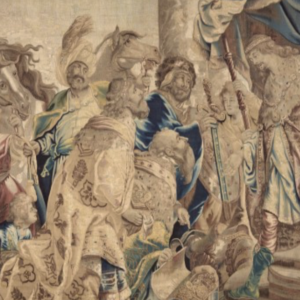Leviticus 17-20: On Goat Demons and the Golden Rule (Bible Talk, Ep. 40)
Leviticus 17–20 covers a lot: goat demons, the meaning of blood, Molech, the holiness of God, and loving your neighbor as yourself. How does it all fit together?
That’s what Alex Duke asks Jim Hamilton and Sam Emadi in today’s Bible Talk episode.
SHOW NOTES
1:21 / Why is Leviticus 16 the center of the Pentateuch?
2:54 / Have we arrived at the random-laws section of Leviticus?
5:58 / Why aren’t we supposed to eat blood?
10:13 / How does Leviticus 17:11 help us to understand what Jesus accomplished?
14:25 / What do the moral codes in Leviticus 18-20 have to do with all the sacrifices of the previous and later chapters?
15:15 / Jim provides commentary on Leviticus 18:1-5 and gets Pauline in interpreting verse five: “You shall therefore keep my statutes and my rules; if a person does them, he shall live by them: I am the LORD.”
21:02 / What does the phrase “uncover your nakedness” mean?
24:01 / Are power dynamics at play in Leviticus 18’s laws about sexual relations?
28:53 / What does it mean that the land vomits In Leviticus 18:28?
29:41 / The headline of Leviticus 19: we are to be holy in everything.
30:38 / Leviticus 19:9-10 reads, “When you reap the harvest of your land, you shall not reap your field right up to its edge, neither shall you gather the gleanings after your harvest. And you shall not strip your vineyard bare, neither shall you gather the fallen grapes of your vineyard. You shall leave them for the poor and for the sojourner: I am the LORD your God.” What’s the significance of this?
31:39 / What about verses 14-17?
32:43 / Isn’t “you shall love your neighbor as yourself” a New Testament command? (Lev. 19:18)
36:05 / Is it wrong to get a tattoo? (Lev. 19:28)
37:35 / Leviticus 20:8 says, “Keep my statutes and do them; I am the LORD who sanctifies you.” Do we not consecrate ourselves? (Lev. 11:44)
38:28 / How does this section of Leviticus end?
Image: Moses, by Pietro Novelli (1603-1647)
Related Multimedia

On Local Churches and Sending Agencies (Missions Talk, Ep. 34)
By J. Mack Stiles, Ryan Robertson









